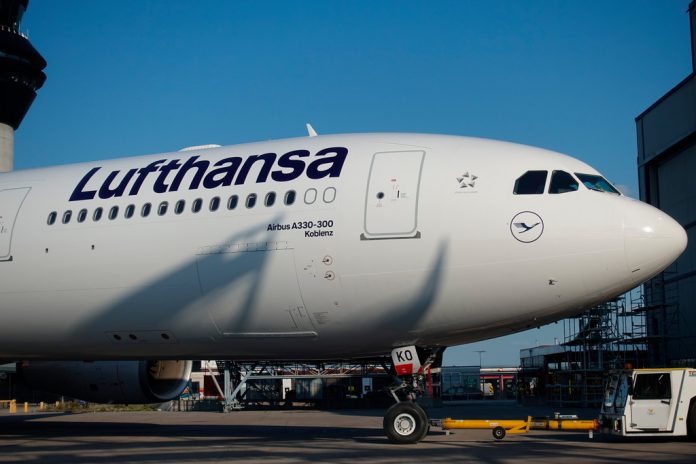The Lufthansa leadership refuses to meet with US workers even after they took strike authorization votes over the summer, protesting poor working conditions described in a new case study.
Lufthansa has announced its intention to sell the remainder of its airline catering operation as soon as possible, which represents 25% of its global workforce. The group management has been negotiating with ITF’s affiliate ver.di on how 7,000 LSG Sky Chefs workers in Germany (10% of the group’s workforce in the country) will be affected by the sale. However, it has refused to meet with the US union UNITE HERE, which represents LSG Sky Chefs workers on the other side of the Atlantic, or indeed the ITF.
While Lufthansa claims to employ its staff “under conditions that guarantee them social and material security”, it is perpetuating poverty for many LSG workers in the United States. Especially in the American South, a legacy of racial injustice and social inequality allows Lufthansa to operate in a way that would be in unacceptable in many parts of Europe. LSG has repeatedly resisted efforts to raise workers out of poverty, neglected to provide affordable health insurance and refused to discuss the impact of the planned sale of the company.
“I’ve worked for LSG Sky Chefs for five cold years, in the cold storage area,” says Preston Strickland, a worker from the Dallas-Fort Worth kitchen which serves American Airlines at its most profitable hub. “Even with the gloves they give me, my fingers freeze.”
Strickland, who starts his shift at 5am and earns only $11.35 (€10.33) per hour, says “I work as much overtime as I can, sometimes six days a week, and for some weeks, I have worked all seven days. But I still can’t afford health insurance. And on and off for the last four years, despite working full time, I have been homeless and living in a shelter or in my car. That’s why we voted 99.3% to strike.”
Supported by the ITF, unions from Germany, the US and the UK have come together to demand that Lufthansa enter into dialogue with its non-German employees.

























